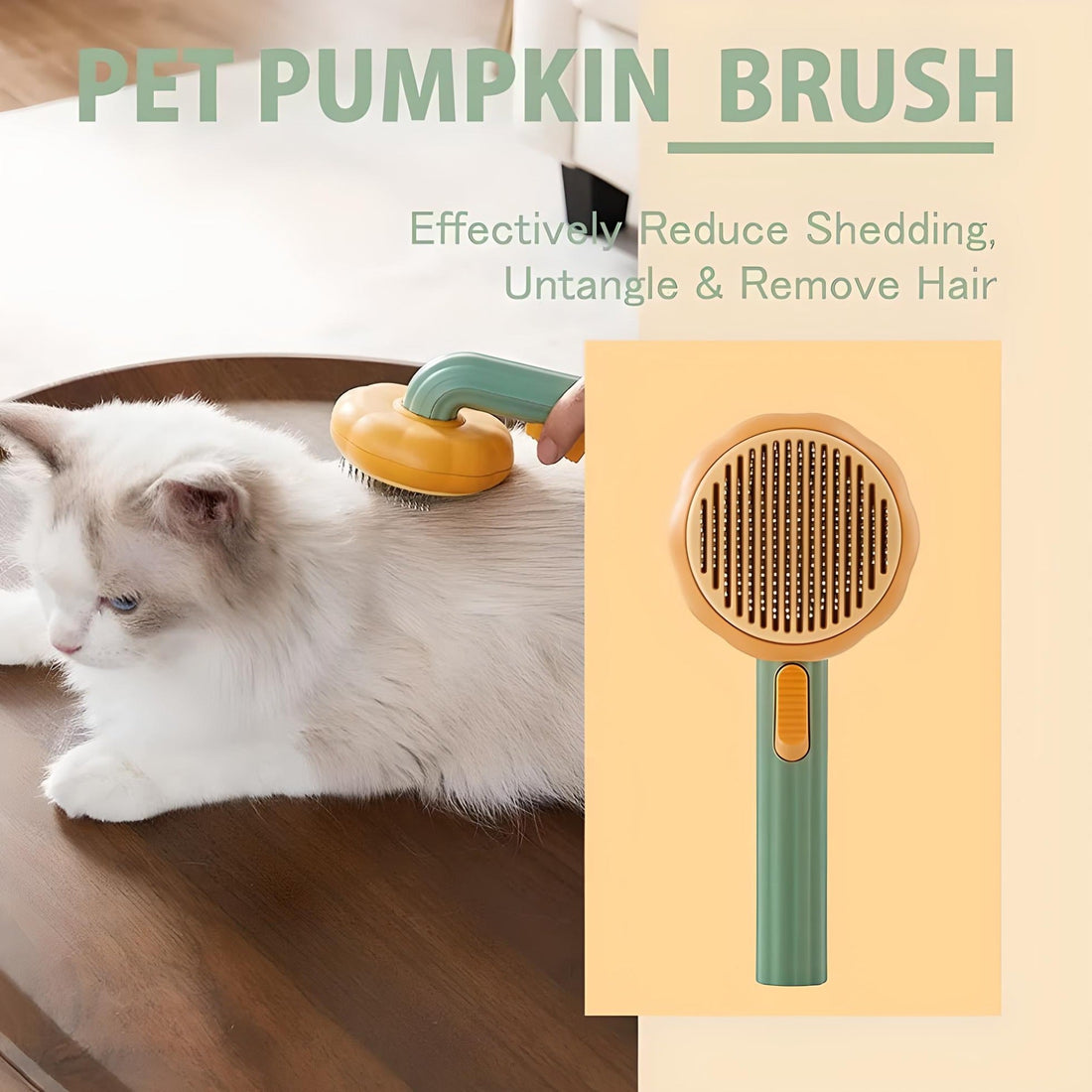Grooming is often seen as a routine task—cut the nails, brush the coat, maybe bathe the dog once a month. But for many pet owners, grooming goes beyond hygiene. It becomes a moment of connection, communication, and trust-building between you and your furry companion.
Whether you're a first-time pet parent or someone who’s cared for animals for decades, this guide will show you how grooming isn't just about appearance—it's a form of affection that speaks your pet’s language.
The right tool—like GauGauPet’s Pumpkin Brush—makes grooming comfortable for your pet and stress-free for you.
Why Grooming Is More Than Just Maintenance
The Power of Physical Touch
Touch is a key part of how animals bond—especially dogs and cats. Regular brushing or combing mimics the natural grooming behavior seen in animal groups, such as cats licking each other or dogs nuzzling.
Benefits include:
- Releases oxytocin (the "love hormone") in both pet and human
- Helps your pet feel safe and calm
- Reinforces your role as a caregiver, not just a feeder
How Grooming Builds Trust – Step by Step
1. Start with Simple, Comfortable Tools
Avoid harsh tools when beginning. Use soft brushes, pet grooming gloves, or silicone scrubbers—especially for short-haired or sensitive pets.
Grooming sessions help your dog feel cared for, turning routine brushing into a bonding ritual.
2. Establish a Routine
Pets love routine. Brushing once every 2–3 days, nail checks weekly, and monthly baths help build expectations and reduce anxiety.
Create positive associations by grooming after walks, before treats, or during quiet bonding time.
3. Learn Their Body Language
Pay attention to signs of discomfort or pleasure:
- Leaning in = comfort
- Twitching tail = mild irritation
- Licking lips, stiffening = stress
Respect their boundaries—this builds trust faster than forcing grooming.
4. Use Voice Cues and Rewards
Talk softly during grooming. Praise calmly when they sit still or allow touch in sensitive areas like ears or paws.
Follow up with:
- Treats
- Toys
- Playtime
This reinforces the idea that grooming = good experience.
Grooming as a Bonding Tool Across Life Stages
Puppies and Kittens
Introducing grooming early helps prevent fear-based resistance later. Make it playful, short, and always end on a positive note.
Adult Dogs and Cats
Once grooming is part of the routine, it becomes a trusted ritual—just like feeding time. Some pets will even nudge the brush when they want a session.
Senior Pets
Older animals often have joint pain, sensitive skin, or anxiety. Use gentle grooming tools like GauGauPet’s soft grooming gloves and limit sessions to 5–10 minutes.
Read more:
Are Bolster Dog Beds Good for Anxiety?
Grooming Tools That Promote Comfort and Bonding
|
Tool |
Use |
Why It Builds Trust |
|
Pet Grooming Gloves |
Brushing & massage |
Feels like petting, soothing |
|
Soft-Bristle Brushes |
Daily coat care |
Great for sensitive skin |
|
Nail Grinders |
Safer than clippers |
Less risk of pain = builds positive memory |
|
Ear Wipes |
Hygiene |
Keeps infections away, done gently |
|
Silicone Bath Scrubbers |
Washing |
Easy to control pressure, pet-safe |
Read more:
How to Use Deshedding Gloves the Right Way
Common Mistakes That Break Trust During Grooming
Avoid these actions, especially early in the relationship:
- Rushing grooming sessions
- Holding your pet down when they resist
- Using painful or loud tools (cheap clippers, harsh brushes)
- Skipping praise or positive reinforcement
Instead, be patient. Take breaks. Grooming should feel mutual, not one-sided.
FAQs
How often should I groom my pet to build trust?
Brush 2–3 times per week, depending on breed. Consistency matters more than frequency.
My dog hates grooming. What should I do?
Start slow. Focus on short, reward-filled sessions using soft tools like gloves. Gradually increase duration over weeks.
Is grooming more important for certain breeds?
Yes. Long-haired or double-coated breeds need it for health reasons, but all pets benefit emotionally from bonding time.
Conclusion
Grooming isn't just about cleanliness—it's about connection. When done right, it's one of the most meaningful ways to deepen your relationship with your pet. You’re not just removing fur—you’re building trust, reducing stress, and strengthening a bond that lasts a lifetime.
Whether you're brushing your dog after a hike or wiping your cat’s paws before bed, every grooming ritual tells your pet: I care, and you’re safe with me.
Ready to upgrade your grooming tools? Explore GauGauPet’s collection of pet-safe grooming gloves, brushes, and wellness gear today!



